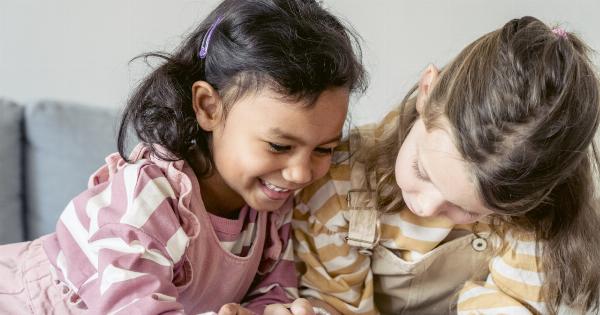There has been a significant shift in societal norms and values regarding family structures in recent years. Gone are the days when the traditional nuclear family was the only accepted form of family.
Today, we see a diverse range of family types, including single-parent households, blended families, same-sex parent households, and more. With this evolution, it has raised questions about the impact of family type on the happiness and well-being of children.
While some argue that certain family types may have negative consequences on children’s happiness, research indicates that the happiness of children is largely unaffected by their family structure.
What defines a family?
Before delving into the impact of different family types on children’s happiness, it is important to define what constitutes a family.
Traditionally, a family was defined as a legally married man and woman living together with their biological children. However, this narrow definition does not reflect the reality of modern families, where various structures can provide loving and caring environments for children.
Today, a family can include single parents raising a child on their own, step-parents and step-siblings forming a blended family, same-sex couples raising children, and even extended family members taking on primary caregiving roles.
The diversity in family types highlights that love, support, and stability are more critical in determining children’s happiness than the specific structure of their family.
Evidence from research
Extensive research has been conducted to examine the impact of family structure on children’s happiness.
In a pioneering study conducted by sociologist Paul Amato, which analyzed data from over 10,000 children, it was found that family structure had minimal effect on children’s overall well-being and happiness.
The study found that children’s happiness depends more on the quality of relationships within the family rather than the structure of the family itself.
Factors such as emotional support, parental warmth, and consistent discipline were found to be far more influential on children’s happiness than the specific family type.
Another meta-analysis published in the Journal of Marriage and Family examined over 70 studies on family structure and children’s well-being.
It concluded that there was no statistically significant difference in children’s happiness between different family types.
The importance of love and support
One common factor that transcends family types and contributes to children’s happiness is the presence of love and support.
Whether it’s a single parent, same-sex parents, or a blended family, children who receive love and support from their caregivers tend to experience similar levels of happiness and well-being.
Children need nurturing relationships and a supportive environment to thrive, regardless of their family structure.
What matters most is the quality of parenting, the emotional bonds within the family, and the child’s overall sense of security and belonging.
Resilience in diverse families
Children have an incredible capacity for resilience, and research shows that they can adapt well to diverse family structures.
Studies have shown that children from single-parent households or same-sex parent households fare just as well academically, socially, and emotionally as those from traditional nuclear families. This resilience stems from the quality of parenting and the support systems available to children rather than the family type itself.
Children who grow up in diverse families often benefit from exposure to different perspectives, increased adaptability, and enhanced problem-solving skills.
These experiences can contribute positively to their overall development and sense of well-being.
Social acceptance and happiness
One factor closely associated with children’s happiness in diverse family structures is the level of social acceptance and support they receive.
Children’s happiness can be influenced by how their family is perceived by society, their peers, and the cultural norms prevalent in their environment.
Research has shown that when children feel accepted and supported, regardless of their family type, they experience higher levels of happiness.
Conversely, societal stigma and discrimination can negatively impact children’s well-being and happiness.
Comparing well-being across family types
Contrary to some beliefs, children raised in non-traditional family structures do not experience significantly lower levels of happiness or well-being compared to those raised in traditional nuclear families.
Several studies have consistently shown that children’s overall happiness and mental health are not determined by their family structure but rather by the quality of relationships within their family.
A study published in the journal Child Development compared children’s well-being in traditional and non-traditional families.
The researchers found that children’s happiness and self-esteem were not influenced by whether they came from intact nuclear families, divorced families, remarried families, or single-parent families.
Factors that truly matter
While family structure may not be the determining factor in children’s happiness, several other factors have a significant impact:.
Quality of parent-child relationships:
Children who have warm, supportive, and loving relationships with their parents or caregivers tend to experience higher levels of happiness and well-being.
Stability and consistency:
A stable and consistent environment, where routines and expectations are clear, promotes a sense of security and contributes to children’s sense of happiness.
Financial resources:
Adequate financial resources can play a role in ensuring children’s basic needs are met, contributing to their overall happiness and well-being.
Social support networks:
Children who have access to supportive relationships beyond their immediate family, such as extended family members, teachers, or mentors, are more likely to experience higher levels of happiness.
Conclusion
Contrary to the beliefs held by some, the happiness of children is largely unaffected by their family type.
Research consistently shows that children’s well-being and happiness are determined by factors such as the quality of relationships within their family, emotional support, and stability. Whether children grow up in traditional nuclear families, single-parent households, blended families, or same-sex parent households, their potential for happiness and success remains unchanged.






























